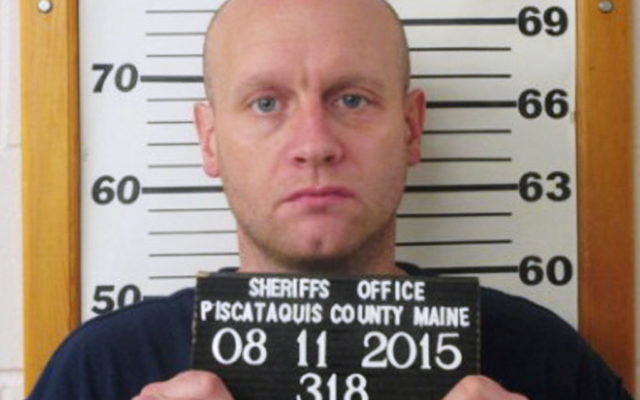
Burton appeals case before Maine’s high court
PORTLAND — The man who killed his ex-girlfriend then led authorities on Maine’s longest manhunt has asked the state’s high court to reconsider his case.
Robert Burton, 41, of Abbot is serving a 55-year sentence at the Maine State Prison in Warren for killing Stephanie Ginn Gebo, 37, of Parkman after breaking into her home more than three years ago. A jury convicted him of murder in October 2017.
Burton, who turned himself in Aug. 11, 2015, after 68 days on the run, is seeking a new trial. He claims the jury should not have been told about two prior convictions for burglary. He also argues that potential jurors should have been able to answer “unsure” on some questions, and his attorneys’ proposed questions should have been included on forms filled out by potential jurors.
The Maine Supreme Judicial Court heard arguments in both appeals Wednesday, Sept. 12 at the Cumberland County Courthouse.
Jeremy Pratt of Camden, who is handling Burton’s appeal, told the justices that jurors should not have been told about his client’s criminal history, especially since he took the stand in his own defense. Burton claimed he acted in self-defense.
“Your concern is that because he has previous convictions for burglary the jurors would assume once a burglar always a burglar?” Justice Ellen Gorman asked.
Pratt answered, “Yes.”
“By allowing in the evidence of Mr. Burton’s prior convictions for burglary, it set the jury up to disbelieve his testimony,” the attorney argued in his brief.
But Chief Justice Leigh Saufley said that the judge allowed only two of Burton’s nine burglary convictions to be admitted. “Why is this wrong?” she asked.
“Because the rules weren’t applied consistently,” he replied.
Pratt also said the defense team’s questions, designed to weed out jurors who could not be impartial, should have been allowed. They included the question: ”Do you believe that because a police officer has arrested someone for murder it means the person arrested is likely guilty?”
He also told the justice that including “unsure” as a possible response rather than just yes or no on written questionnaires would allow attorneys to determine which potential jurors should be questioned more thoroughly about their views.
Justice Donald Alexander disagreed, noting that jury selection in murder and other high profile cases already is lengthy, taking anywhere from two days to a week. He said that more questioning of potential jurors would discourage people from participating in the process.
There is no timetable under which the justice must issue a decision in the case.